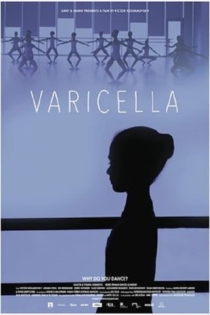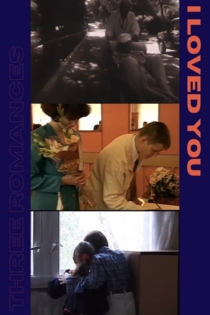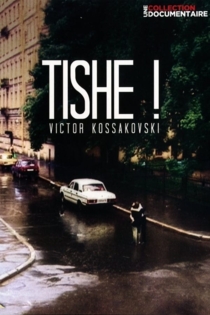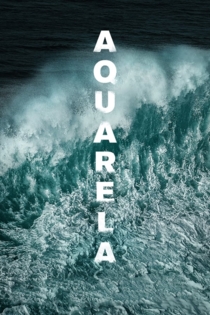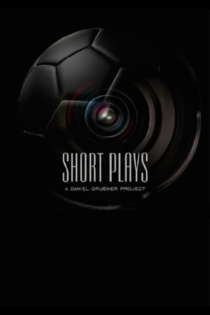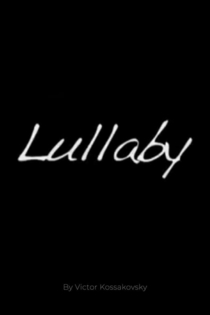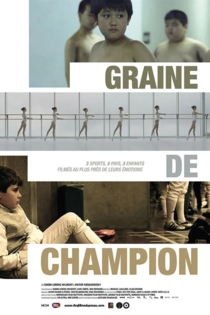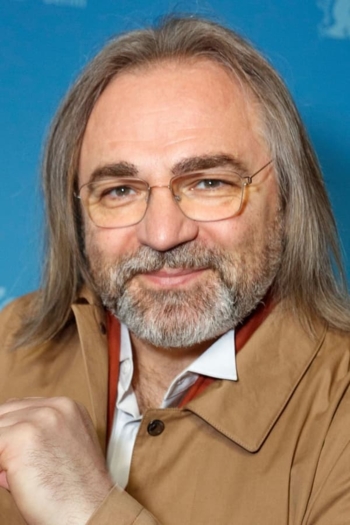
Viktor Kossakovsky
1961 (64 года)С 1978 работал ассистентом оператора, ассистентом режиссера и монтажером на Санкт-Петербургской (Ленинградской) студии документальных фильмов. 1986 -1988 – учился на Высших курсах сценаристов и режиссеров. Обладатель более сотни призов российских и международных фестивалей.
Donde vuelan los condores
Carlos Klein
Viktor Kossakovsky
In his film, the Chilean film director accompanies Russian filmmaker Victor Kossakovsky during the shooting of his latest film. In Patagonia, at Lake Baikal and in Shanghai, Victor Kossakovsky explores the singular relationships between places and people on opposite sides of the world. Carlos Klein documents the making of this ambitious film in a very personal way, driven by his own inner search for images that still have an impact on us. While doing so, he reveals his own and Kossakovsky‘s ambiguous attitude towards filmmaking.
Where the Condors Fly

Sreda
Viktor Kossakovsky
Victor Kossakovsky searched obsessively for inhabitants of St. Petersburg who were born on Wednesday 19 July 1961, his own birthday, in former Leningrad. Fifty-one women and fifty men fitted the profile. In the course of time a few of these 101 people had died, others had moved to another community or abroad. But in 1995 Kossakovsky managed to capture on film all seventy remaining residents, in the street, at work or simply at home. While doing so he spent time with doctors and patients, entertainers and businessmen, construction workers and homeless people. In his unorthodox style Kossakovsky has produced a beautiful profile of people in their thirties in St. Petersburg.
Wednesday
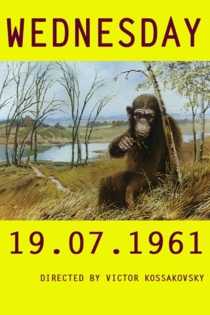
Беловы
Viktor Kossakovsky
Anna Fyodorovna Belova, Mikhail Fyodorovich Belov
Portrait of a troubled peasant family. The film tells the story of two times widow Anna Belova who lives together with her brother Mikhail. Blending the two personalities, Kosakovsky characterizes the true Russian soul: she is the rational worker, honest and strong - he is the drunken poet, the idealist, his philosophy fades into radical nonsense time after time.
The Belovs
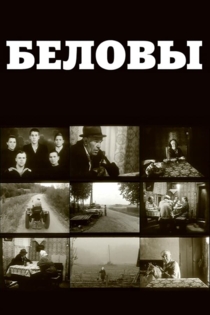
Svyato
Viktor Kossakovsky
Svyatoslav Kossakovsky
In Russian, "Svyato" means "happy". But it is also a nickname for Svyatoslav, the son of director Kossakovsky, who for two years covered mirrors from Svyato. For the first time in his life, Svyato is going to watch himself on a mirror.
Svyato
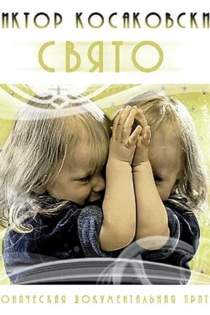
¡Vivan las Antipodas!
Viktor Kossakovsky
What would be the shortest route between Entre Rios in Argentina and the Chinese metropolis Shanghai? Simply a straight line through the center of the earth, since the two places are antipodes: they are located diametrically opposite to each other on the earth's surface. During his visits to four such antipodal pairs, the award-winning documentary filmmaker Victor Kossakovsky captured images that turn our view of the world upside down.
¡Vivan las Antipodas!
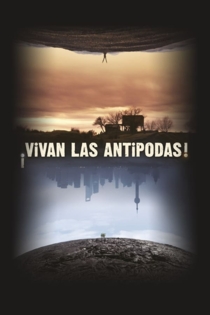
Gunda
Viktor Kossakovsky
Experiential cinema in its purest form, GUNDA chronicles the unfiltered lives of a mother pig, a flock of chickens, and a herd of cows with masterful intimacy. Using stark, transcendent black and white cinematography and the farm's ambient soundtrack, Master director Victor Kossakowsky invites the audience to slow down and experience life as his subjects do, taking in their world with a magical patience and an other worldly perspective. GUNDA asks us to meditate on the mystery of animal consciousness, and reckon with the role humanity plays in it. Executive produced by Joaquin Phoenix.
Gunda
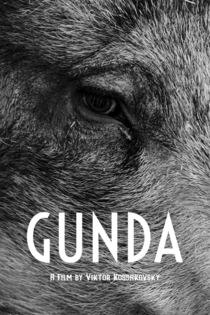
Losev
Viktor Kossakovsky
It was one of his mentors who once told Kossakovsky, "There are two types of intelligent people; some say what they know, while others think while they speak, in order to try and say something they did not know yet, something that suggests itself in them." Victor Kossakovsky took this profundity to heart and became a filmmaker of the second category. He dedicated his documentary debut to the speaker of these words, the Russian philosopher and religious thinker Alexey Fedorovich Losev (1893-1988), who died shortly after the completion of this film. Shot in black-and-white, the film consists of two crucial shots that symbolize silence and night at both ends of the life chain. In the beginning of the film, the rising sun slowly swathes a cemetery in daylight. At the end, the earth covers a coffin bit by bit and heralds the great darkness. In Losev's words, "Divine intentions that lie beyond our reason, that's why we die."
Losev

Kindergarten
Viktor Kossakovsky
The toddlers in a Russian playgroup are showing a striking number of adult traits. Here and there, serious romantic relationships are budding, and some tots are determined to marry. One infant may urge her friend to keep his voice low, or else the filmmakers will hear everything they say, but most pre-schoolers are undisturbed and continue their everyday activities. They play with dolls, hang around on the playground and chatter a lot, particularly about who is whose friend and who is whose lover. In this environment, the direct cinema style seems even more natural than it usually is. Two years ago, IDFA screened Victor Kossakovsky’s film Pavel and Lyalya (a Jerusalem Romance), which dealt with the profound and unselfish love of an elderly couple. In contrast, the infatuations of young kids are volatile and playful, because ten minutes later you can be married to someone else.
Kindergarten (First Romance)

Павел и Ляля. Иерусалимский романс
Viktor Kossakovsky
“Like the right and left hand Your soul is close to my soul We are sealed shut, blissfully and warmly, Like the right and left wing…” The life and art of Pavel Kogan and Lyudmila Stanukinas, two famous Leningrad documentary filmmakers, can best be expressed by the Tsvetaeva stanza cited above. They are the main characters of this film, which their student Viktor Kossakovsky shot during Pavel Kogan’s final months. For Lyudmila Stanukinas, Lyalya, as those close to her called her, her husband was her only reason for existence. She was with him until the end and held onto his extinguishing life as much as she could.
Pavel and Lyalya (A Jerusalem Romance)
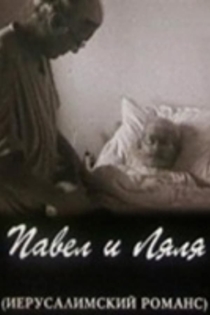
Varicella
Viktor Kossakovsky
Seven-year-old Polina and her 13-year-old sister Nastia live and breathe ballet. Both of them are studying at the Boris Eifman Dance Academy in frigid Saint Petersburg. They’re currently awaiting their grades to find out if they’ve done well enough to be promoted to the next year, with Nastia lovingly guiding he little sister through the process. But in the meantime, Nastia also has to deal with the high demands that the academy places on its students. The gorgeously styled shots are sometimes calm, even clinical, and sometimes warm, lively and funny.
Varicella
